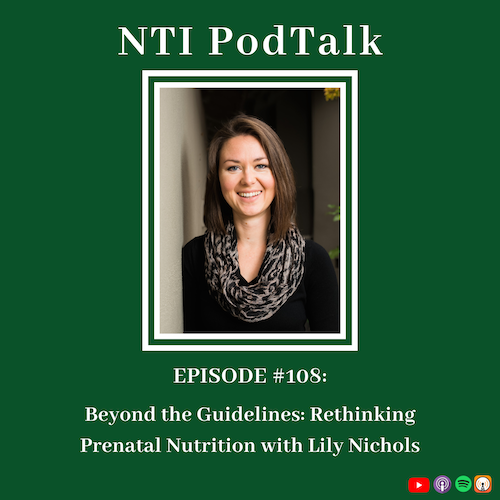
Share this post!
As health challenges continue to rise, more people are turning to wellness professionals for guidance. But if you’re considering a career in health and wellness, you might wonder: What’s the difference between a Nutrition Therapist and a Health Coach? Though these roles often overlap, they are distinct paths uniquely serving clients.
Whether you’re passionate about coaching individuals to better lifestyle habits or using nutrition science to support whole-person health, understanding each role’s qualifications and scope is crucial—for both your career satisfaction and your clients’ well-being. Here’s a clear guide to help you navigate the differences and decide which career is right for you.
Health Coaches: Guiding Lifestyle Changes through Client Empowerment
Health Coaches partner with clients who want to improve their wellness through self-directed changes. Trained through NBHWC (National Board for Health & Wellness Coaching) programs, Health Coaches bring encouragement, active listening, and client-centered strategies to their practice.
Their training focuses on coaching skills—understanding clients’ values, helping set realistic goals, and guiding positive lifestyle shifts. Here’s a breakdown of what this role looks like:
- Core Skills: Health Coaches learn techniques to build trust, ask insightful questions, and empower clients to make sustainable changes. The emphasis is on creating a supportive environment where clients feel comfortable exploring and committing to wellness goals.
- Scope of Practice: Health Coaches work with clients to implement lifestyle adjustments. However, they aren’t trained to provide detailed dietary or nutrition advice since their curriculum focuses more on coaching and behavior change than nutritional science.
- Credentialing: Health Coaches can become NBC-HWC certified after completing an approved training program and passing a board exam. Certification ensures they adhere to professional standards, focusing on motivational coaching without crossing into clinical recommendations.
Example: A Health Coach might work with a client who wants to reduce stress by incorporating more physical activity into their week. Through regular sessions, the coach helps the client set goals, track progress, and stay motivated—all while respecting the client’s unique pace and values.
Nutrition Therapists: Science-Based Nutritional Guidance with a Holistic Approach
Nutrition Therapists, also known as Holistic Nutrition Professionals (HNPs), provide nutrition-focused support rooted in holistic principles. Their education goes beyond coaching, giving them a clinical understanding of how diet affects overall health. With training approved by the NANP (National Association of Nutrition Professionals), Nutrition Therapists are equipped to guide clients in dietary choices supporting various health aspects.
Here’s what defines a Nutrition Therapist:
- Core Skills: Besides learning how to coach effectively, Nutrition Therapists study subjects like biochemistry, anatomy, and nutritional needs throughout different life stages. This education prepares them to make personalized dietary recommendations based on each client’s unique health needs.
- Scope of Practice: Unlike Health Coaches, Nutrition Therapists can offer evidence-based nutrition advice. They assess clients’ nutritional needs and suggest dietary adjustments that align with holistic health principles. This expanded scope allows them to guide clients in ways that directly impact their nutritional well-being.
- Credentialing: After completing a comprehensive, NANP-approved program, Nutrition Therapists can earn the BCHN (Board Certified in Holistic Nutrition) credential. This certification ensures they meet industry standards in holistic nutrition science and client care.
Example: A Nutrition Therapist might help a client struggling with fatigue by analyzing their diet and recommending nutrient-dense foods that support energy levels. This approach goes beyond basic advice, focusing on specific nutritional strategies aligned with the client’s lifestyle and wellness goals.
Comparison at a Glance: Health Coach vs. Nutrition Therapist
| Aspect | Health Coach | Nutrition Therapist |
| Primary Focus | Lifestyle changes, behavior coaching | Science-based nutrition guidance, holistic health |
| Educational Foundation | Coaching techniques and client relationship-building | Comprehensive nutrition science with coaching skills |
| Scope of Practice | Goal setting, stress management, habit change | Nutritional assessments, personalized dietary advice |
| Credentials | NBC-HWC (National Board Certified Health & Wellness Coach) | BCHN (Board Certified in Holistic Nutrition) |
While both roles help clients make healthier choices, Nutrition Therapists provide a more in-depth, nutrition-focused approach, whereas Health Coaches focus on behavior change and motivation. This table offers a quick overview to help you identify which role might best suit your strengths and interests.
Legal Boundaries and Professional Scope of Practice
For both Health Coaches and Nutrition Therapists, knowing the limitations of their practice is essential to operating within legal boundaries. Neither profession can diagnose or treat medical conditions; those responsibilities remain with licensed healthcare providers. However, each role supports clients in different ways:
- Health Coaches: They facilitate lifestyle improvements and positive habit formation, collaborating with clients to set and reach wellness goals that complement other treatments.
- Nutrition Therapists: With their extensive nutrition backgrounds, nutrition therapists can suggest dietary changes to support health, but they do so without diagnosing or treating illnesses.
Example: A Health Coach and a Nutrition Therapist might work with clients referred by a healthcare provider. The Health Coach focuses on motivation and accountability, while the Nutrition Therapist offers nutritional insights that support the client’s prescribed treatment.
Becoming a Certified Professional in Health Coaching or Nutrition Therapy
Steps to Certification as a Health Coach
- Complete a recognized NBHWC program: 75 hours minimum, focusing on coaching skills.
- Gain practical experience: Log 50 health coaching sessions to apply knowledge.
- Pass the board exam: Achieve NBC-HWC credentials, signaling adherence to coaching standards.
Steps to Certification as a Nutrition Therapist
- Attend an NANP-approved program: Complete 1,080 hours in nutrition science and holistic health.
- Gain client-based experience: Meet the 500-hour requirement to practice confidently.
- Pass the BCHN exam: Gain board certification to practice as a qualified Nutrition Therapist.
With these credentials, Health Coaches and Nutrition Therapists can build careers in various fields, from private practice to corporate wellness.
Why Now is the Right Time to Join the Wellness Industry
The demand for wellness professionals is growing. Jobs for dietitians, nutritionists, and health educators are projected to increase at a faster-than-average rate in the coming decade. If you’re passionate about helping people live healthier, more fulfilling lives, either role offers a meaningful and impactful career.
Both paths can be incredibly rewarding—helping clients reach wellness goals and navigate life’s challenges. Choosing between Health Coaching and Nutrition Therapy depends on where you see yourself making the greatest impact. Do you want to inspire positive habits through guidance and support? Or are you more driven to educate clients on nutrition’s role in holistic health?
Whatever you choose, there’s no better time than now to start a career that makes a difference.
By choosing Nutrition Therapy Institute (NTI), you’ll gain a comprehensive, NANP-approved education that sets you apart as a certified Nutrition Therapist. NTI’s programs provide the deep nutrition knowledge and coaching skills needed to impact clients’ lives positively. With NTI, you’ll be ready to sit for the BCHN certification and build a rewarding career in holistic nutrition.
Are you ready to make a difference through a meaningful, in-demand career?
Contact us to explore NTI’s programs and take the first step toward a future in holistic wellness.
Related reading…
Nutrition Therapist Master vs. Registered Dietitian: What’s the Difference?
Holistic Nutrition and Dietetics – What Is the Difference?!
Discover Why NTI Is The Preferred Choice For Professionally Trained Nutrition Therapists
Top 5 Reasons Why You Need a Nutrition Therapist
Image by Amy Hirschi on Unsplash
Share this post!

















